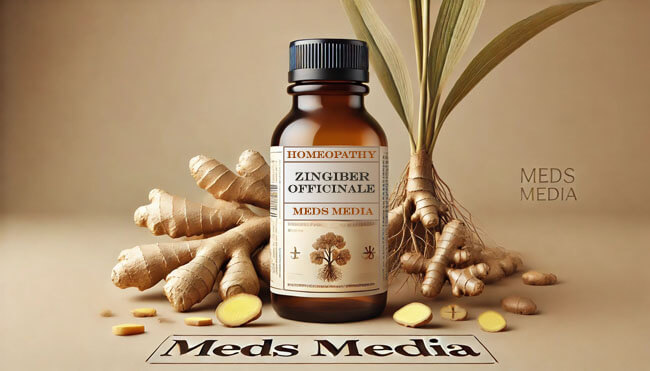
Sanguinarinum Nitricum is a homeopathic medicine derived from the plant Sanguinaria Canadensis, commonly known as bloodroot. It is prepared using the process of trituration, where the plant extract is mixed with lactose and ground to a fine powder.
Properties and Preparation:
Sanguinarinum Nitricum is primarily used to treat respiratory conditions and digestive disorders.
It is known for its anti-inflammatory and expectorant properties.
The preparation involves potentizing the triturated powder by diluting it with lactose and succussing (shaking) it vigorously.
Symptoms treatment and materia medica:
Chronic nasal congestion: Persistent blockage of the nasal passages.
Sinusitis: Inflammation of the sinuses, causing pain and pressure in the face.
Post-nasal drip: The sensation of mucus dripping down the throat from the back of the nose.
Dry, hacking cough: A persistent cough without the production of mucus.
Sore throat: Pain, discomfort, or irritation in the throat.
Hoarseness: Abnormal voice changes characterized by a rough or strained voice.
Burning sensation in the stomach: A discomforting burning feeling in the stomach region.
Acid reflux: The backward flow of stomach acid into the esophagus, causing heartburn.
Nausea and vomiting: Feeling of queasiness and the act of forcefully expelling stomach contents.
Diarrhea: Frequent, loose, or watery bowel movements.
Headaches: Pain or discomfort in the head region.
Facial flushing: Temporary reddening of the face due to dilated blood vessels.
Bloodshot eyes: Redness and irritation of the eyes.
Insomnia: Difficulty falling asleep or staying asleep.
Anxiety: A feeling of unease, nervousness, or worry.
FAQs (Frequently Asked Questions)
Q: What is the recommended dosage of Sanguinarinum Nitricum?
A: The dosage of Sanguinarinum Nitricum can vary depending on the individual and the specific condition being treated. It is best to consult a qualified homeopathic practitioner for the appropriate dosage and potency suitable for your case.
Q: Can Sanguinarinum Nitricum be used during pregnancy or breastfeeding?
A: It is generally recommended to avoid using any homeopathic medicine, including Sanguinarinum Nitricum, during pregnancy or breastfeeding without consulting a healthcare professional. They can provide personalized guidance based on your specific situation.
Q: How long should one continue taking Sanguinarinum Nitricum for desired results?
A: The duration of treatment with Sanguinarinum Nitricum can vary depending on the individual’s response to the remedy and the nature of the condition. It is advisable to follow the guidance of a homeopathic practitioner who can assess your progress and make recommendations accordingly.
Q: Are there any known side effects or contraindications?
A: As a homeopathic medicine, Sanguinarinum Nitricum is prepared in highly diluted form, which minimizes the risk of side effects. However, individual sensitivities can vary, and some people may experience temporary aggravation of symptoms. If you notice any unusual or severe reactions, it is important to discontinue use and seek medical advice.
Q: Can Sanguinarinum Nitricum be taken alongside other medications?
A: Homeopathic medicines are generally considered safe to use alongside conventional medications. However, it is advisable to inform your healthcare provider about all the medicines you are taking, including Sanguinarinum Nitricum, to ensure there are no potential interactions.
Q: Is it safe to use Sanguinarinum Nitricum for children?
A: Homeopathic treatment for children should be done under the guidance of a qualified homeopathic practitioner. They can assess the child’s specific needs and determine the suitability and dosage of Sanguinarinum Nitricum or any other homeopathic medicine.
Q: Can Sanguinarinum Nitricum be used for conditions other than those mentioned?
A: Sanguinarinum Nitricum is primarily indicated for respiratory conditions and digestive disorders. While it may have a broad range of therapeutic applications, it is important to consult a homeopathic practitioner to determine its appropriateness for specific conditions not mentioned and to receive personalized guidance.
Books Reference:
Boericke, William. “Pocket Manual of Homeopathic Materia Medica and Repertory.”
Kent, James Tyler. “Lectures on Homeopathic Materia Medica.”
Boger, Cyrus Maxwell. “Synoptic Key of the Materia Medica.”
Please note that the information provided here is for informational purposes only and should not replace professional medical advice. It is always recommended to consult qualified homeopathic doctors for proper diagnosis, guidance, and individualized effective homeopathy treatment.
Why Meds Media guides are different
We focus on clear, practical explanations of homeopathic and natural health topics so you can understand remedies, symptoms, and lifestyle changes in simple language.
Meds Media is an educational resource only. Always consult a qualified doctor or homeopathic practitioner before starting, stopping, or changing any treatment.
Similar Posts You may also like
Zincum Picricum Homeopathic Medicine & Personality | Uses, Benefits & Indications
Zincum Phosphoricum Homeopathic Medicine & Personality | Uses, Benefits & Indications
Zincum Iodatum Homeopathic Medicine & Personality | Uses, Benefits & Indications
Zincum Bromatum Homeopathic Medicine & Personality | Uses, Benefits & Indications
Zea Homeopathic Medicine & Personality | Uses, Benefits & Indications
Zincum Aceticum Homeopathic Medicine & Personality | Uses, Benefits & Indications
Zincum Cyanatum Homeopathic Medicine & Personality | Uses, Benefits & Indications
Zincum Muriaticum Homeopathic Medicine & Personality | Uses, Benefits & Indications
Zincum Oxydatum Homeopathic Medicine & Personality | Uses, Benefits & Indications
Zincum Sulphuricum Homeopathic Medicine & Personality | Uses, Benefits & Indications

Phosphorus Homeopathic Medicine & Personality | Uses, Benefits & Indications
Causticum Homeopathic Medicine & Personality | Uses, Benefits & Indications

Top Global Homeopathic Medicine Manufacturers

Top renowned Homeopathic research institutes worldwide

Veratrum Viride Homeopathic Medicine & Personality | Uses, Benefits & Indications

Spongia Tosta Homeopathic Medicine & Personality | Uses, Benefits & Indications

Zingiber Officinale Homeopathic Medicine & Personality | Uses, Benefits & Indications


